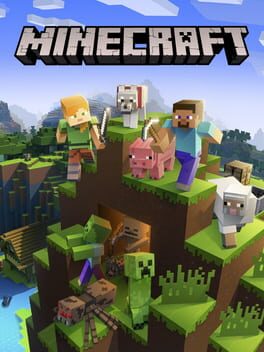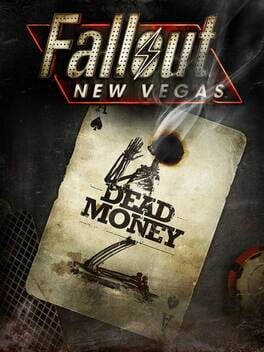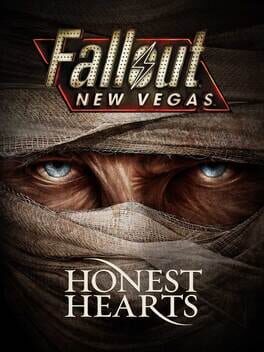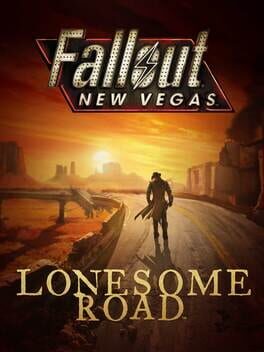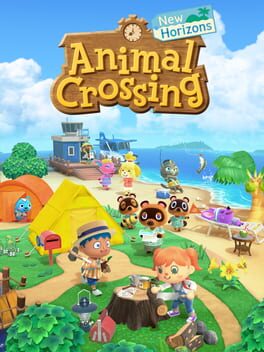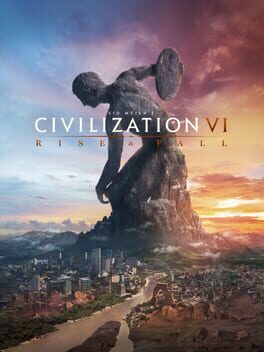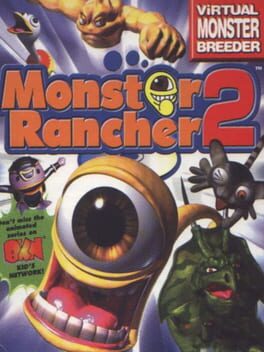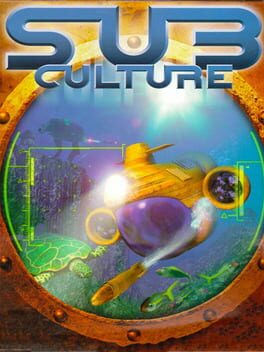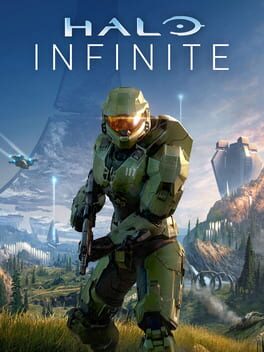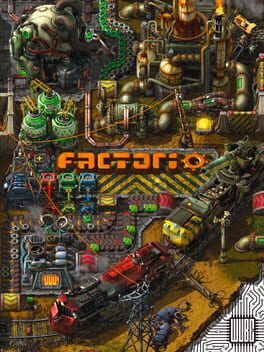Gurn
2011
It's an odd beast: a game slapped together by one guy—essentially a sandbox with whatever features he felt like adding each week—then bought out and built upon by a world-class team of developers, ultimately becoming something with a greater sense of design intent and commercial appeal, but with the rough indie heart still pumping blood through its body. Minecraft is a mess but there's nothing quite like it.
2010
An exemplar CRPG. I've played it through several times and each time felt that I was given the tools and the freedom to express a vastly different character. The story prompts many compelling moments of decision making and builds upon the ideas of prior Fallout games in interesting ways. This is an all-time favourite that I regularly come back to.
It's got a real oppressive atmosphere, and once you've started it there's no way out but through. I suspect it's for these reasons that Dead Money gets a bad rap, but I think it's one of the stronger of New Vegas' DLC offerings. It's got an interesting cast of characters, asks some tough decisions of the player, and has a poignant thematic throughline.
A beautiful new overworld and some fun loot just about make up for this DLC's surprising lack of depth. Honest Hearts is, essentially, a few fetch quests ending in a binary choice. It's fine. Pretty good, actually. It doesn't ask many interesting decisions of your character, but it's got some cool places to explore and some great environmental storytelling. I particularly enjoyed piecing together Randall Clark's journal entries scattered throughout Zion, which make for teary-eyed reading.
Enjoyable enough as a boss run—a fun, linear challenge with some cool environments for high-level characters to blast through—and the fact that you can leave and come back to it whenever you want (unlike other DLC) stops it from becoming a slog. Ulysses' verbiage is unfortunately a bit tiresome (bear, bull, bear, bull—we get it, this isn't clever) but the stuff with ED-E is cute.
I am fond of the Animal Crossing series for providing a gentle—though ultimately repetitious—timesink to be enjoyed once per demi-decade, and New Horizons delivered this in spades at a very welcome time. It's not a particularly innovative sequel (if anything it's lost a smidgeon of the soul found in prior games) but this release has plenty of polish and is probably the best of what the series has to offer.
Though the features added in Rise and Fall are hit and miss, I would not go back to playing without it. The positives outweigh my grumbles: the loyalty mechanic brings welcome depth to city placement and livens up your borders; achieving historic moments feels great and so does being able to review your civ's history; and overall there's a lot more of what was already in the base game (new playable civilizations, new wonders, etc.) which together bring variety and longevity to the experience.
But while we're here, I have two grumbles and they're both to do with the Great Ages mechanic:
1) It was much more fun in base game when the big "you have entered the renaissance era" (or whatever) moment was triggered by you researching a renaissance era technology. The new system—wherein you are pre-warned that "the world will enter the renaissance era" (or whatever) in X amount of turns, and then it just happens—feels passive and thus dissatisfying.
2) Because the points that you earn towards achieving a Golden Age do not carry over into the next era, players who have already met the threshold for a Golden Age are encouraged to make odd decisions and avoid triggering Heroic Moments in order to score the points later. It's a level of micromanagement that feels narratively incongruous.
But while we're here, I have two grumbles and they're both to do with the Great Ages mechanic:
1) It was much more fun in base game when the big "you have entered the renaissance era" (or whatever) moment was triggered by you researching a renaissance era technology. The new system—wherein you are pre-warned that "the world will enter the renaissance era" (or whatever) in X amount of turns, and then it just happens—feels passive and thus dissatisfying.
2) Because the points that you earn towards achieving a Golden Age do not carry over into the next era, players who have already met the threshold for a Golden Age are encouraged to make odd decisions and avoid triggering Heroic Moments in order to score the points later. It's a level of micromanagement that feels narratively incongruous.
2022
2022
1999
1997
2021
It is a competent and polished shooter featuring many familiar Halo elements but the story is a horse-by-committee mess and you'll have forgotten about the campaign just as soon as you've finished it. I don't think open world was a particularly good direction for the Halo franchise, although traversing with the grappling hook is fun.
2016
2019
There's a concise and creative third person action shooter at the core of this game, and then there's some other stuff that may or may not float your boat. I'm not sure if the bordering-on-pretentious narrative presentation worked for me, especially since it's sometimes at odds with the pacy action gameplay. Nevertheless, Control's oddities and failures were interesting to experience.
1996
